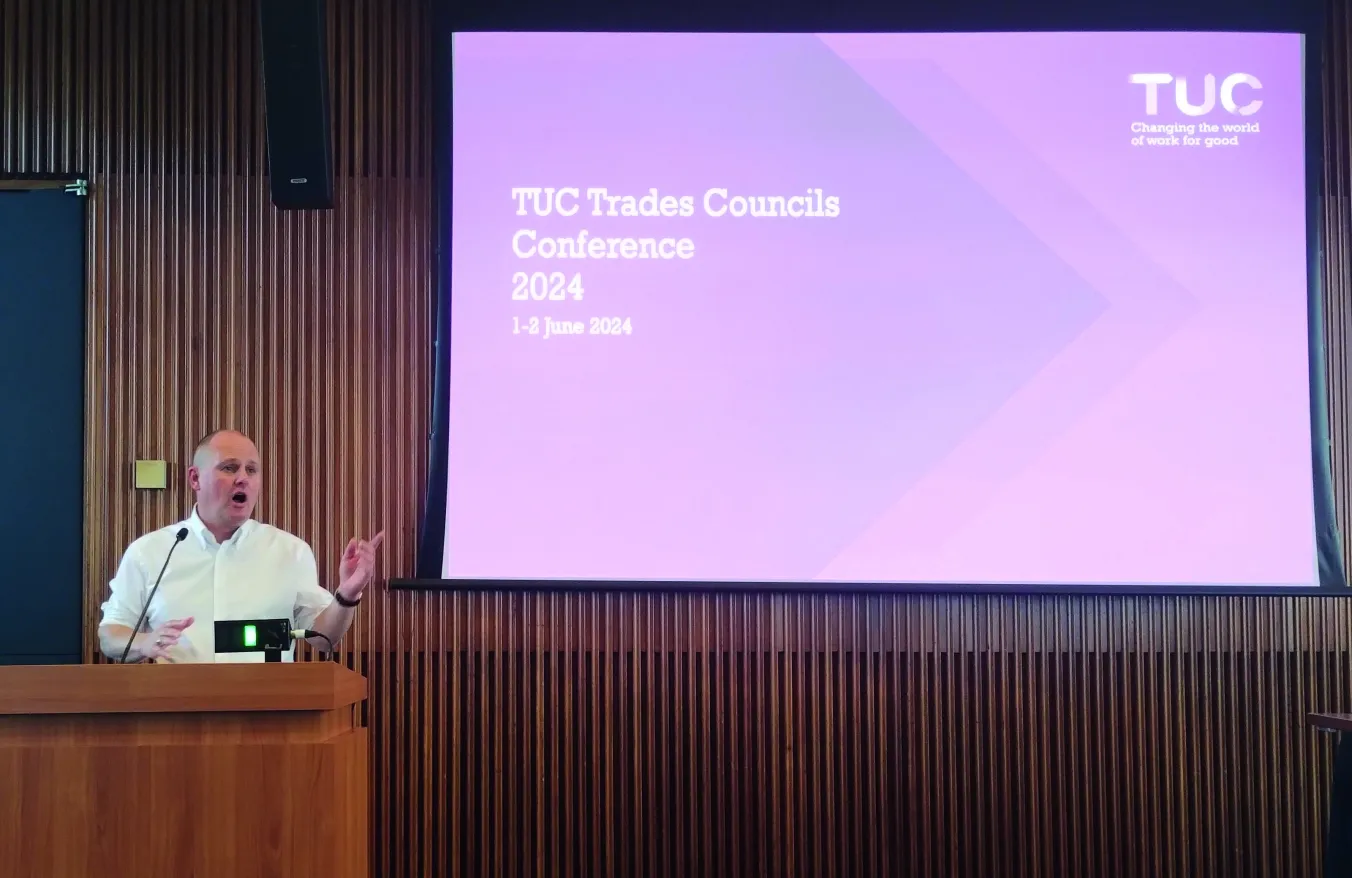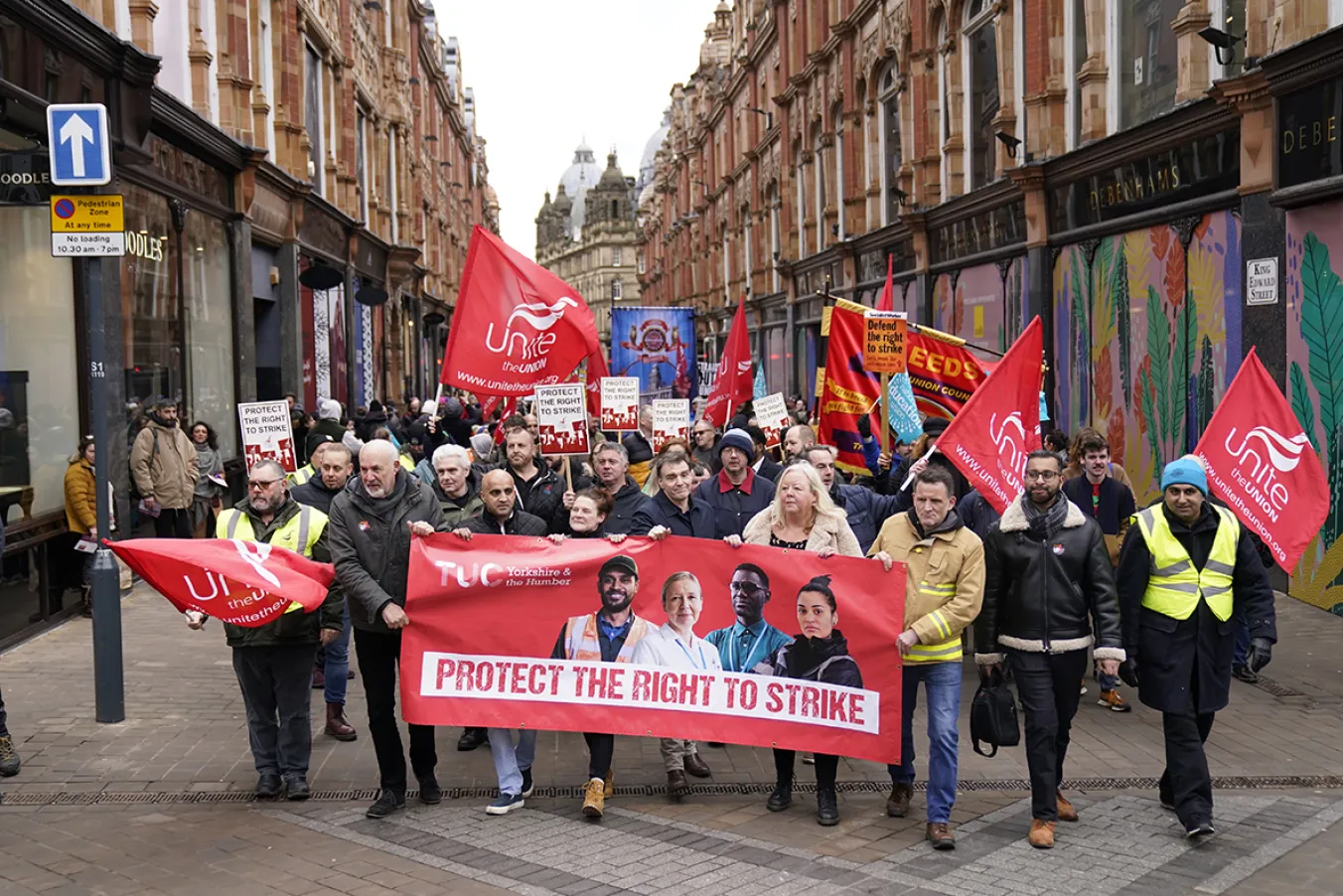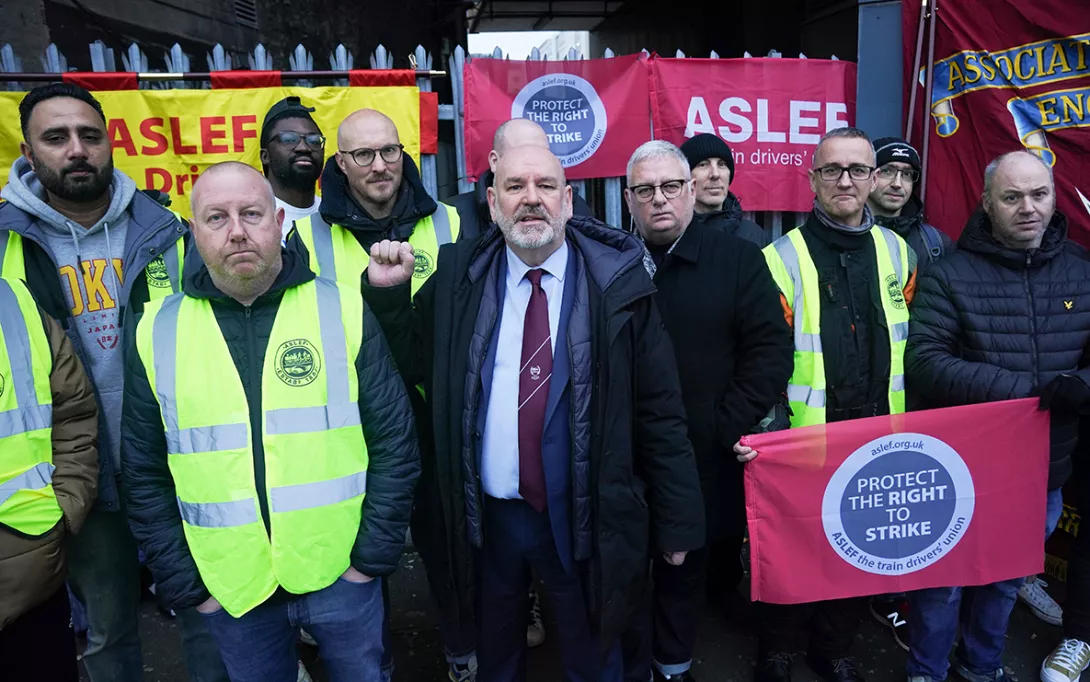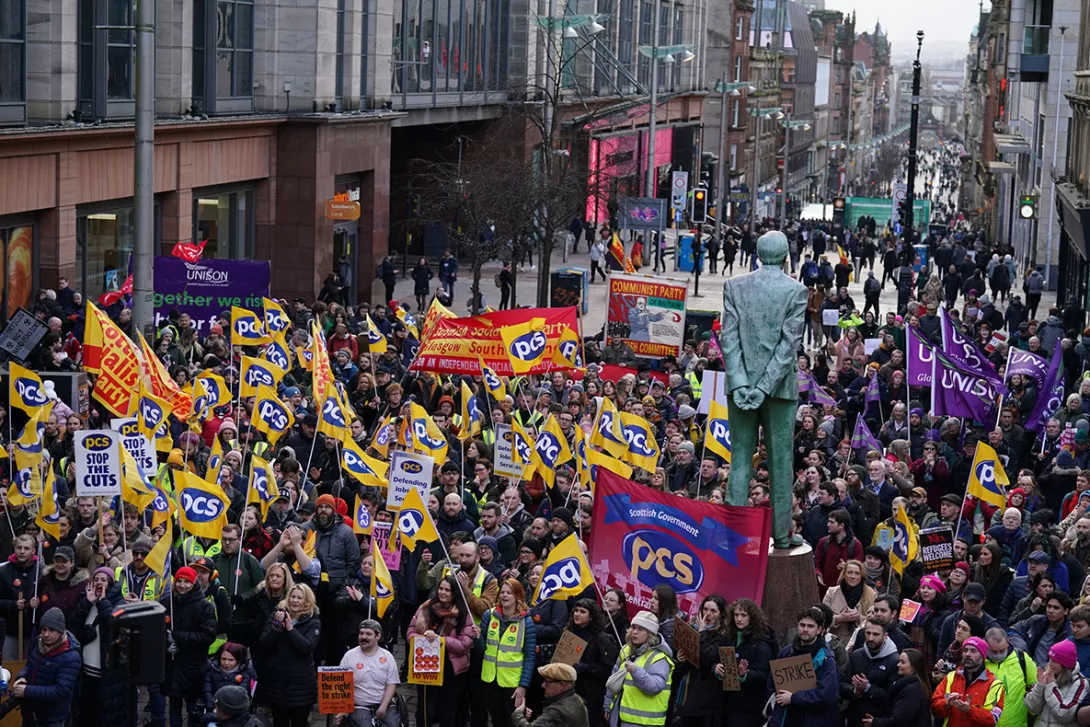
A NEW front has opened in the battle to defend trade union rights from the latest onslaught by the anti-worker Tory government. A coalition of campaign groups and unions led by Strike Map and the Campaign for Trade Union Freedom (CTUF) has launched a nationwide campaign calling on councils across Britain to refuse to implement the draconian Strikes (Minimum Service Levels) Act which came into force this year.
This pernicious law grants employers new powers to undermine strike action by compelling certain union members to work and break strikes. Through the issuing of “work notices,” employers can force employees to cross picket lines or risk dismissal.
Refusal by unions to comply can lead to bankruptcy through the sequestration of their assets. “This act is nothing short of union busting,” said Mick Whelan, general secretary of the train drivers’ union, Aslef. “It overtly seeks to undermine the basic right of workers to withdraw their labour.”
The new legislation identifies six sectors that will be impacted by Minimum Service Levels (MSL): healthcare, fire services, education, transport, nuclear decommissioning, and border security. The government claims disruption must be minimised in these “essential services,” but the sweeping scope betrays their real motive — sabotaging the right to take industrial action.
Councils employ thousands of workers across these sectors. If implemented by local authorities, MSL will hamper the ability of groups like teachers; education support staff; municipal transport workers, especially on tramways; and, the fire and rescue service to fight for better pay and conditions. That’s why unions are demanding that council leaders definitively reject the issuing of work notices.
Both the Scottish government and Welsh Assembly have refused to introduce MSL, so the campaign is targeted at English councils. The tactic is to mobilise union members to flood local leaders with emails insisting their authorities uphold the right to strike.
The responses will be mapped ahead of May’s local elections to highlight the stances taken. Henry Fowler, Strike Map co-founder and steering group member, called on all councils and employers to reject the Act’s provisions outright. “Scotland, Wales and Sheffield are already designated as ‘MSL free-zones’, now we want to see this across the country.”
Where councils indicate they will comply with the legislation, the coalition plans an escalation of tactics — for example petitions, phone calls and protests at town halls to show councils the strength of feeling that exists.













